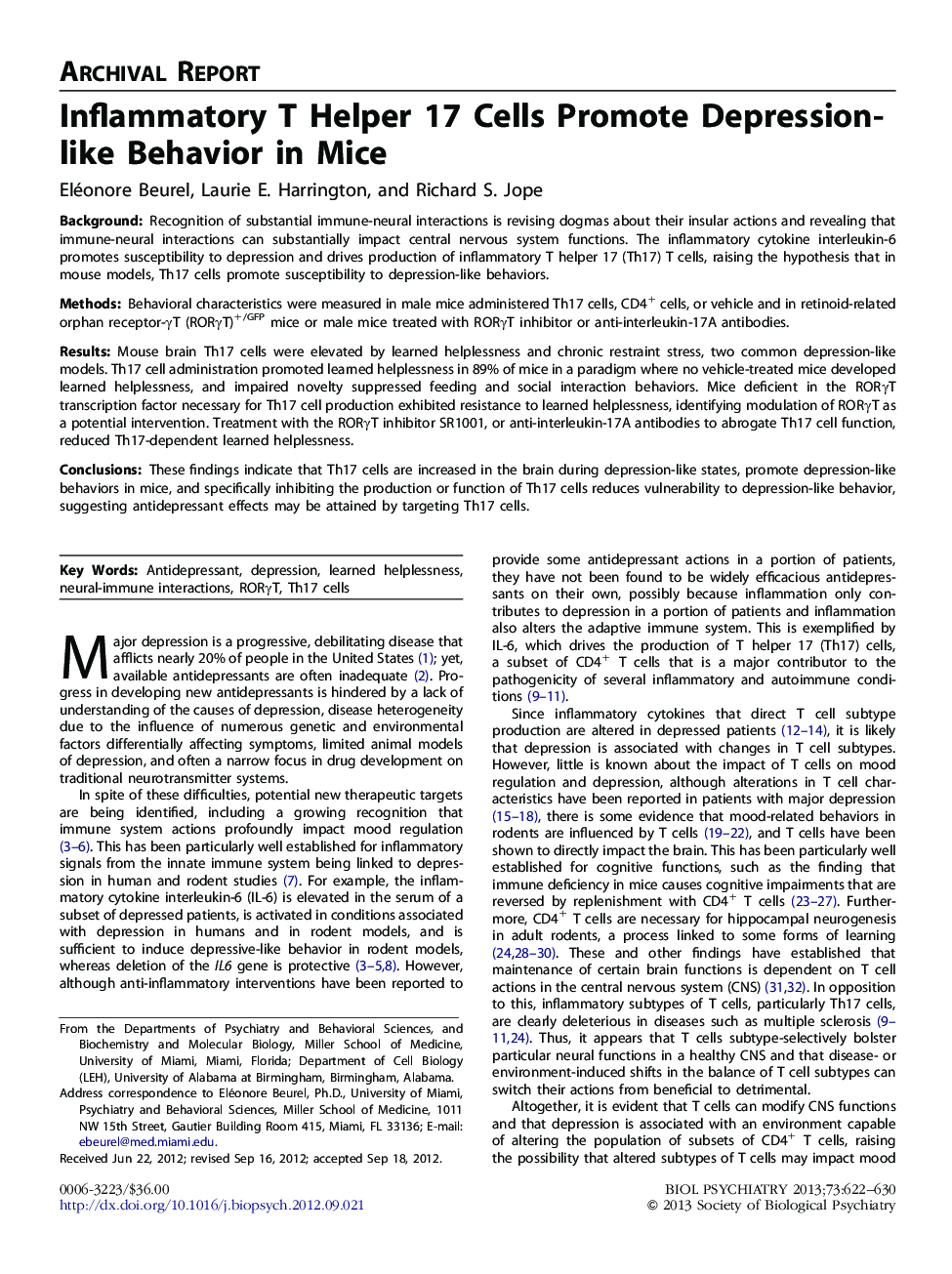| Article ID | Journal | Published Year | Pages | File Type |
|---|---|---|---|---|
| 4178008 | Biological Psychiatry | 2013 | 9 Pages |
BackgroundRecognition of substantial immune-neural interactions is revising dogmas about their insular actions and revealing that immune-neural interactions can substantially impact central nervous system functions. The inflammatory cytokine interleukin-6 promotes susceptibility to depression and drives production of inflammatory T helper 17 (Th17) T cells, raising the hypothesis that in mouse models, Th17 cells promote susceptibility to depression-like behaviors.MethodsBehavioral characteristics were measured in male mice administered Th17 cells, CD4+ cells, or vehicle and in retinoid-related orphan receptor-γT (RORγT)+/GFP mice or male mice treated with RORγT inhibitor or anti-interleukin-17A antibodies.ResultsMouse brain Th17 cells were elevated by learned helplessness and chronic restraint stress, two common depression-like models. Th17 cell administration promoted learned helplessness in 89% of mice in a paradigm where no vehicle-treated mice developed learned helplessness, and impaired novelty suppressed feeding and social interaction behaviors. Mice deficient in the RORγT transcription factor necessary for Th17 cell production exhibited resistance to learned helplessness, identifying modulation of RORγT as a potential intervention. Treatment with the RORγT inhibitor SR1001, or anti-interleukin-17A antibodies to abrogate Th17 cell function, reduced Th17-dependent learned helplessness.ConclusionsThese findings indicate that Th17 cells are increased in the brain during depression-like states, promote depression-like behaviors in mice, and specifically inhibiting the production or function of Th17 cells reduces vulnerability to depression-like behavior, suggesting antidepressant effects may be attained by targeting Th17 cells.
